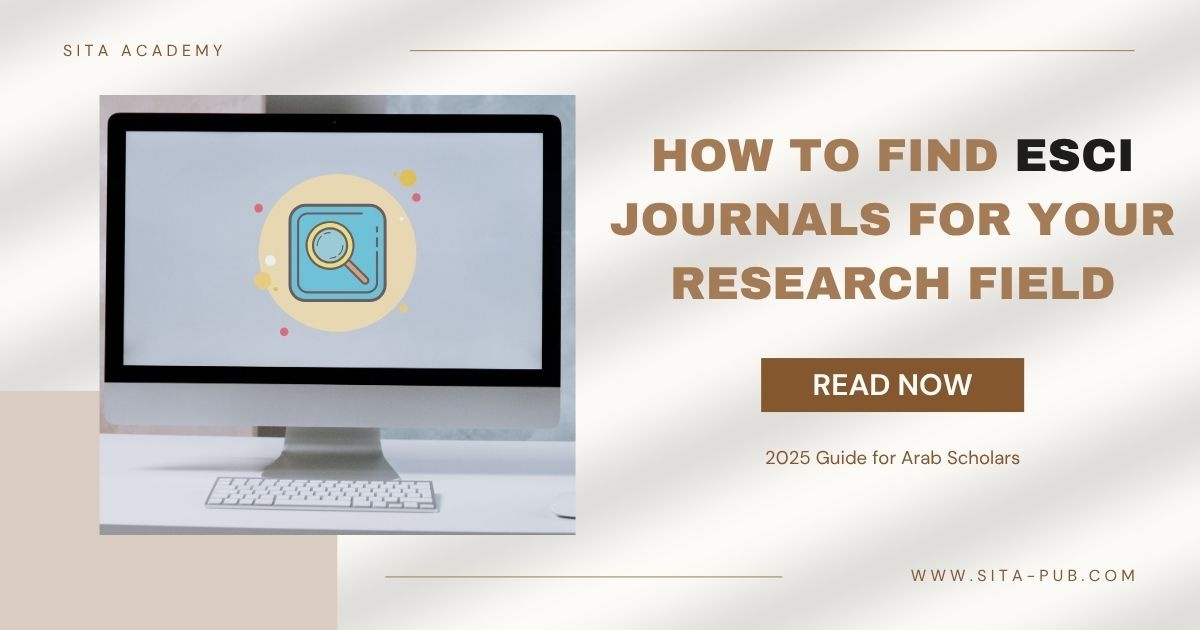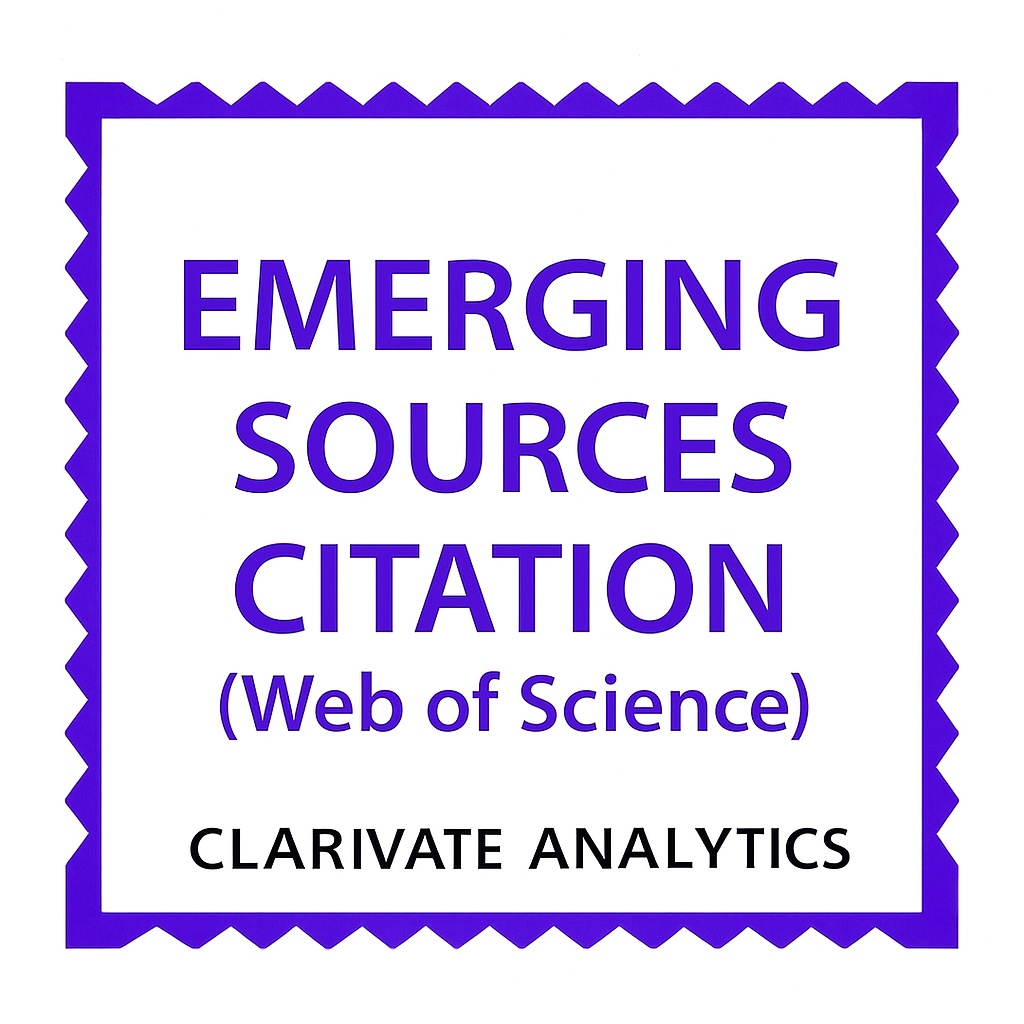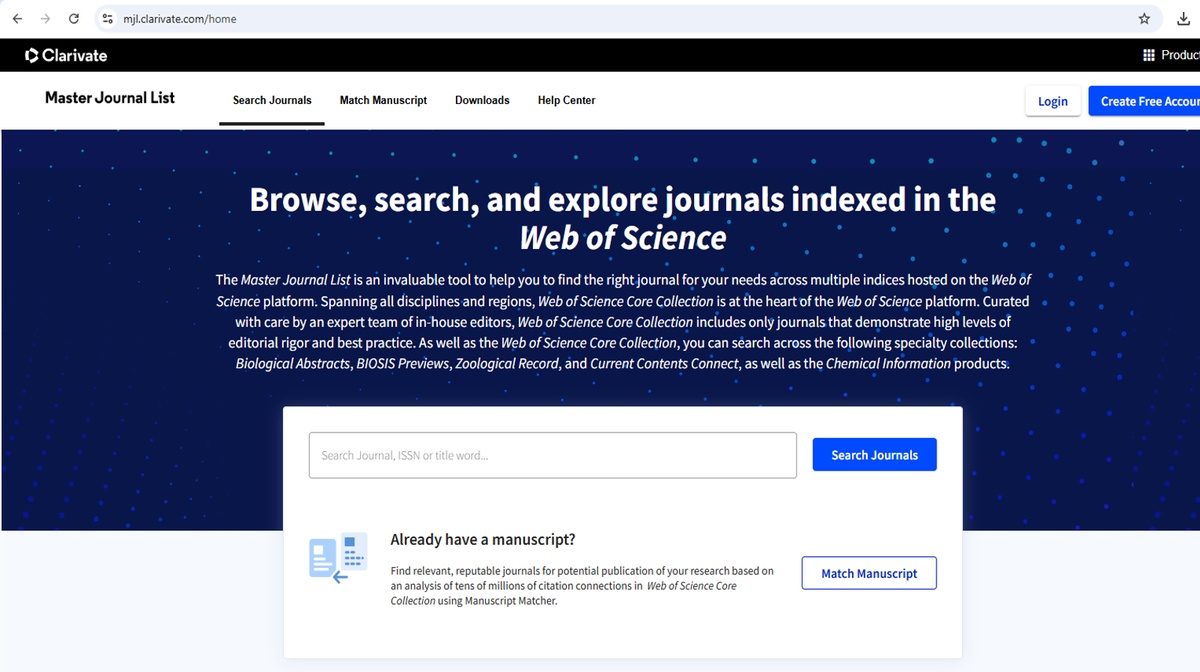How to Find ESCI Journals for Your Research Field (2025 Guide for Arab Scholars)


If you’re a researcher or faculty member in the Arab world, you’ve probably heard of Web of Science and its impact on academic promotion. But have you come across ESCI journals?
The Emerging Sources Citation Index (ESCI) is part of the Web of Science Core Collection, managed by Clarivate Analytics. It was launched in 2015 to help researchers like you discover high-quality journals that may not (yet) have an Impact Factor—but still follow solid academic standards.
As of 2025, ESCI includes more than 8,500 active journals and over 5.6 million papers across 250+ subject areas—from engineering and medicine to Islamic studies and social sciences.

These journals are fully searchable and citable in Web of Science, and they’re often a smart, credible option for researchers looking for:
Peer-reviewed, ethical publishing venues
Regional relevance
Opportunities for academic promotion in countries like Saudi Arabia, Egypt, UAE, Jordan, and more
In short: ESCI journals offer a solid middle ground—not as selective as SCIE or SSCI, but still trusted, trackable, and reputable.
ESCI journals aren’t “lower quality”—they’re often:
Run by respected scholars or scientific societies
Regionally significant (which means they care about local and regional research!)
Fully peer-reviewed and transparent in their publishing process
Ethical and follow international guidelines (COPE, DOAJ, etc.)
Many of them are up-and-coming and may even move into SCIE or SSCI in the future.

If you’re wondering “How can I find the right ESCI journal for my topic?” — don’t worry. Here are three practical ways to start your search:
This is the official place to verify if a journal is truly ESCI-indexed.
Just go to https://mjl.clarivate.com, and:
Choose “Web of Science Core Collection”
Select “ESCI” under indexes
Type your field or keywords (e.g., Civil Engineering, Public Health, Islamic Finance)
Filter by region, language, or publisher if needed

Tip: Don’t trust a journal just because it says it’s ESCI—always check here first.
Whether you’re in:
Medicine
Engineering
Business
Islamic Studies
Education or Social Sciences

There are active ESCI journals in nearly every discipline. You can search using your keywords, or we can help you find a match (see the next tip!).
If you’re busy or unsure how to search, send us your field or abstract, and we’ll send you:

Yes—many universities in the Arab region accept ESCI journals for academic promotion, especially if the journal is peer-reviewed and listed in Clarivate’s database. Just make sure your university includes ESCI in its guidelines.
No. ESCI journals don’t have Impact Factors yet—but they’re fully indexed in Web of Science and tracked for citations, so they’re still credible and visible.
Kind of. While they don’t have IFs, ESCI journals are still part of the Web of Science Core Collection, which many institutions loosely refer to as “ISI.” Just make sure your institution accepts ESCI, not only SCIE or SSCI.
Don’t rely on what journal websites claim. Go straight to https://mjl.clarivate.com, or reach out to us to verify. Some predatory journals falsely say they’re indexed—double-check to protect your work.
Generally, yes. ESCI journals often have quicker review processes than top-tier journals, making them ideal if you’re facing promotion deadlines or time constraints.
![]()
This is one of the most common concerns for scholars in Saudi Arabia and other Arab countries: Will an ESCI-indexed journal help me in my academic promotion?
The short answer is: Yes—but with some conditions.
Many Saudi universities do recognize ESCI publications, especially if the journal is peer-reviewed and indexed in the official Web of Science Core Collection. However, they usually give more weight to SCIE, SSCI, or Q1/Q2-ranked journals.
Here’s a quick overview of how top Saudi institutions currently treat ESCI-indexed publications for promotion:
ESCI is accepted for promotion alongside SCIE, SSCI, AHCI, and JCR-indexed journals.
However, ESCI publications usually carry lower academic weight.
Still useful for moving from Assistant to Associate Professor or fulfilling minimum publication requirements.
Requires 3 to 7 publications for promotion.
Prefers Q1–Q2 journals, but does accept ESCI as part of the overall record.
Candidates are encouraged to publish in higher-impact journals when possible.
ESCI is accepted, but greater emphasis is placed on SCIE and SSCI journals.
Good for completing a publication portfolio, but not typically sufficient on its own for higher academic ranks.
Both universities recognize ESCI publications, especially in combination with SCIE or Scopus-indexed work.
ESCI journals can be strategic additions to your promotion file.
send us your research abstract or field of study, and we’ll provide:
A curated list of suitable ESCI journals
Verified links to their official pages
Details on fees, review times, and open access options
Below Are Our Contact Channels on Different Social Media Platforms
If you have any questions, inquiries, or would like to learn more about our services, please don't hesitate to reach out to us. Our dedicated team is ready to assist you.